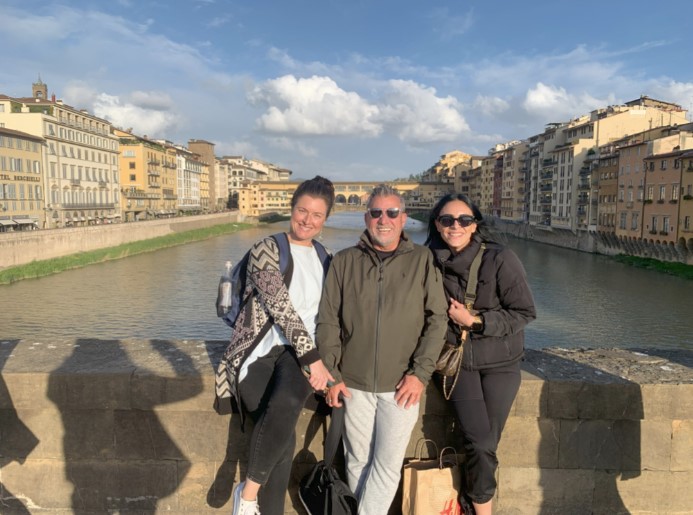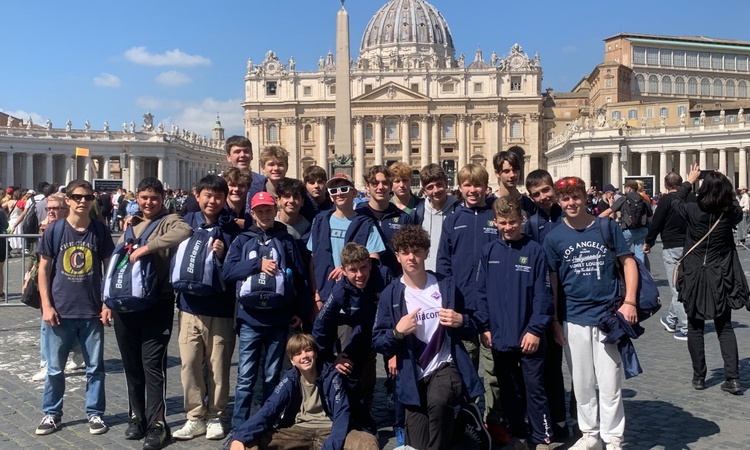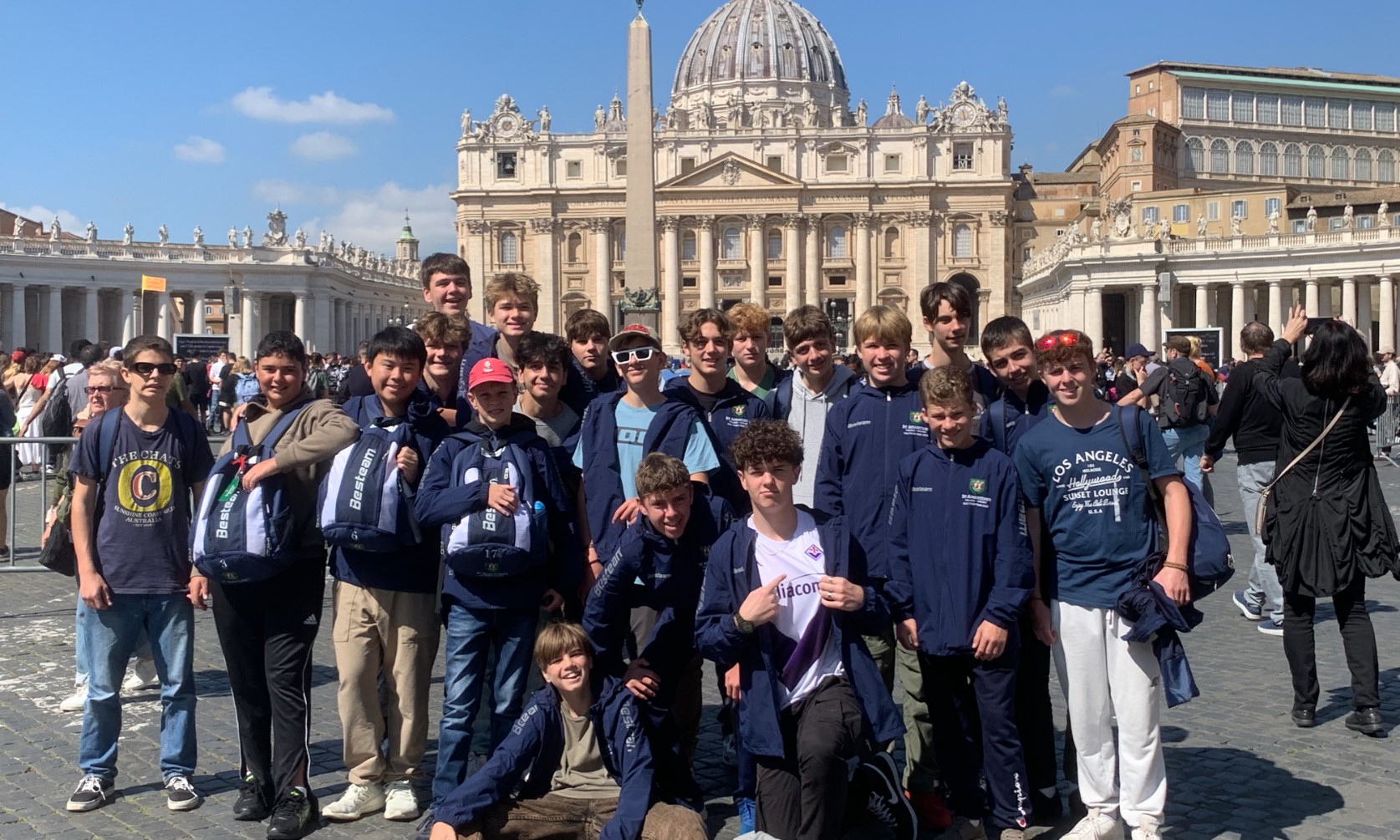SYDNEY - Stephanie D’Arcangeli, the school’s Head of Language since 2017 and a teacher of Italian, emphasised how language teaching is particularly valued at St. Augustine’s, where children can choose between Italian, Chinese and Japanese.
Born to Australian parents of Italian descent, initial contact with the Italian language for D’Arcangeli was so pleasant and positive that it prompted her to continue her studies, travel to learn more about the Bel Paese and become, in turn, a teacher.
The attention devoted studying languages at the school also comes in the form of study trips that are organised, in rotation, between China, Japan and Italy.
Finally, after the hiatus imposed by the pandemic, travel recommenced this year, and D’Arcangeli accompanied a group of 21 students to Italy, along with two other colleagues.
“The study trip was open to students from Year 9 to Year 12, although only the youngest participated, partly because in the final year we have a class of only five boys,” D’Arcangeli explained.
“Over the years the numbers have grown a lot, so much so that for Year 11 the class has 20 students, while 40 chose Italian in year 10.”
Prior to their departure, there was a concerted effort in class on the use of terms and vocabulary useful for the trip, to prepare the children for the possibility of solving small daily needs.
This was especially important considering they were hosted by Italian families, some of whom did not speak English.
The group, which travelled during Easter, not only had the opportunity to visit cities such as Milan, Venice, Rome and the archaeological site of Pompeii, but also spent a week in Florence.
There, the students were able to visit the surrounding area and even attended a few classes at a school in the city.
Deep and affectionate bonds were forged with the families despite the short stay, as D’Arcangeli recounts, “One of the host mums cried inconsolably when she said goodbye to the student who had stayed with them, and so many of them created group chats and wrote to each other often.”
Linguistically, living with a family gave an advantage to the students who, through this immersive experience, were able to learn colloquial words of the familiar and informal variety that are not taught in the classroom.
“At the beginning of the trip, students often resorted to English out of shame or fear of making mistakes,” said the teacher.
“As time went on, they gained confidence and awareness of their tools and let themselves go.
“We reminded them that no matter if you make mistakes, it was essential to challenge themselves to improve their knowledge of the language.”
The time spent in Italy changed students’ relationship with the language, not only because they realised that what they study between their desks in school can have a practical implication in real life, but also because it created a connection with Italy.
For them, the Bel Paese ceased being just a distant country to be pointed to on a map. Italian memories have changed their perception, forever binding them to the Boot.

The three teachers who accompanied the students in Italy; Jessie Rawlinson (left), Anthony Bataille (centre) and Stephanie D'arcangeli (right)
In addition, D’Arcangeli points out, “When the children noticed that people understood them, despite speaking a language that was not their own, they felt confident, satisfied, and it gave them great motivation to continue studying Italian in the years to come.”
The trip was also an opportunity to learn about and understand the differences in culture, customs and school systems. Many noted how different, for example, the houses they lived in for a week were, with markedly different spaces than in Australia.
The children were able to compare school systems, but they were also impressed by the thousands of years of history, the small superstitions that are part of Italian culture and tradition, and the variety of accents.
“The group had a very educational experience that will stay with them forever, but also I, as a teacher, was able to appreciate seeing students outside the classroom, connecting with them in a different way, in a different environment,” D’Arcangeli continued.
The school hopes to welcome Italians soon, “even if they won’t be the same kids who hosted us, it would be nice to reciprocate the generosity we received,” the teacher said.
The result of this trip has made the beauty of learning and being able to express themselves in a foreign language tangible for the boys, and their new passion can already be seen in the classroom.
St Augustine College students’ stories
HARRY W - YEAR 10
I think this was one of the best experiences of my life and I hope to return to Italy in the future. The thing I enjoyed the most was Venice, with its canals and the boats in which we visited the city.
I am really grateful to have participated in the trip and to have chosen to study Italian. Thanks also to the teachers who accompanied us.
OWEN C - YEAR 10
Hi! My name is Owen.
I really enjoyed traveling in Italy. I enjoyed Rome and Venice, but what I enjoyed the most was my stay in Florence.
My host family was kind and they all helped me adjust to Italian life.
We visited Pisa, went to school, had a pizza party and much more.
During the trip we ate the best pasta, visited historical sites and monuments, and I would love to come back. I love Italy!
JACKSON Q - YEAR 10
What I enjoyed most about the trip was staying with family. The school in Italy is very different from the school in Australia: teachers move classrooms and not students, breaks last only 10 minutes and school ends at 1:00 to go home for lunch.
I enjoyed going out in the evenings with local kids and exploring the city I lived in. We watched a soccer game between local teams.
Overall, it was a wonderful experience.
COOPER O - YEAR 10
When I went to Italy I was amazed at how different everything was.
The streets in all the cities we visited were very narrow, and even in Florence where I lived with family, I used public transportation which is different from how we know it in Australia.
The buses are smaller and have more space for people to stand, fewer seats and you use paper tickets to travel, which you have to obliterate with a machine.
Participating in the study trip with the school was amazing and I was able to get more experiences than I would normally get from traveling.
OLIVER S - YEAR 9
The trip to Italy was amazing, I really enjoyed everything. In particular, I was fascinated by Venice, watching the master glassmaker demonstration, and then I also enjoyed the Colosseum.
Before I left I was quite nervous, but then I had a great time. I made friends with many people with whom I had a good time.
I was also a little worried about the family stay, but it turned out to be a memorable experience. I wouldn’t be able to say what I enjoyed the most, as everything was a lot of fun.
I am very glad I participated in this trip, made new friends and improved my language skills.
LUCA A - YEAR 10
This trip to Italy was one of the most incredible experiences of my life, the memories of which will stay with me forever.
The best time was when we arrived in Venice, with its picturesque canals and wonderful weather that created the perfect backdrop. The homestay was really a great experience, observing Italian culture, learning more about the language and experiencing the daily routine of Italian life was not only interesting, but fun.
Finally, I really enjoyed visiting Rome and learning about Italian history. Overall, the trip was truly an unforgettable experience for which I am very grateful.












